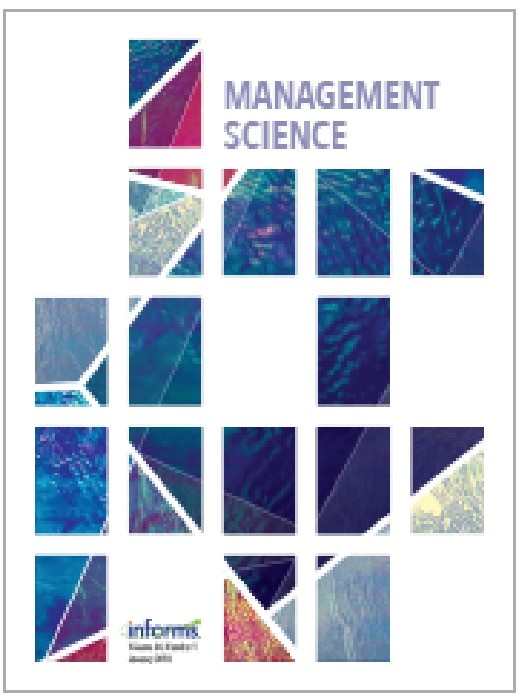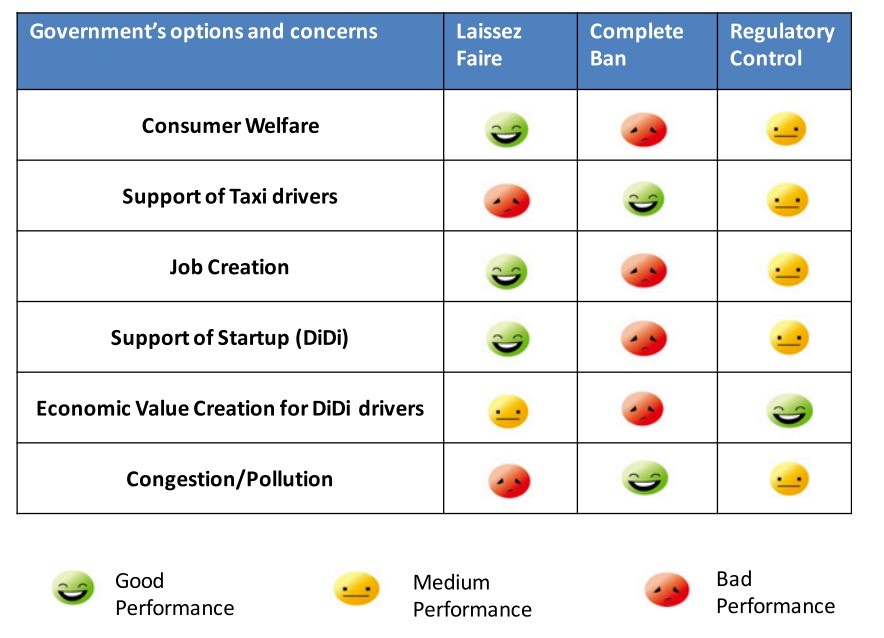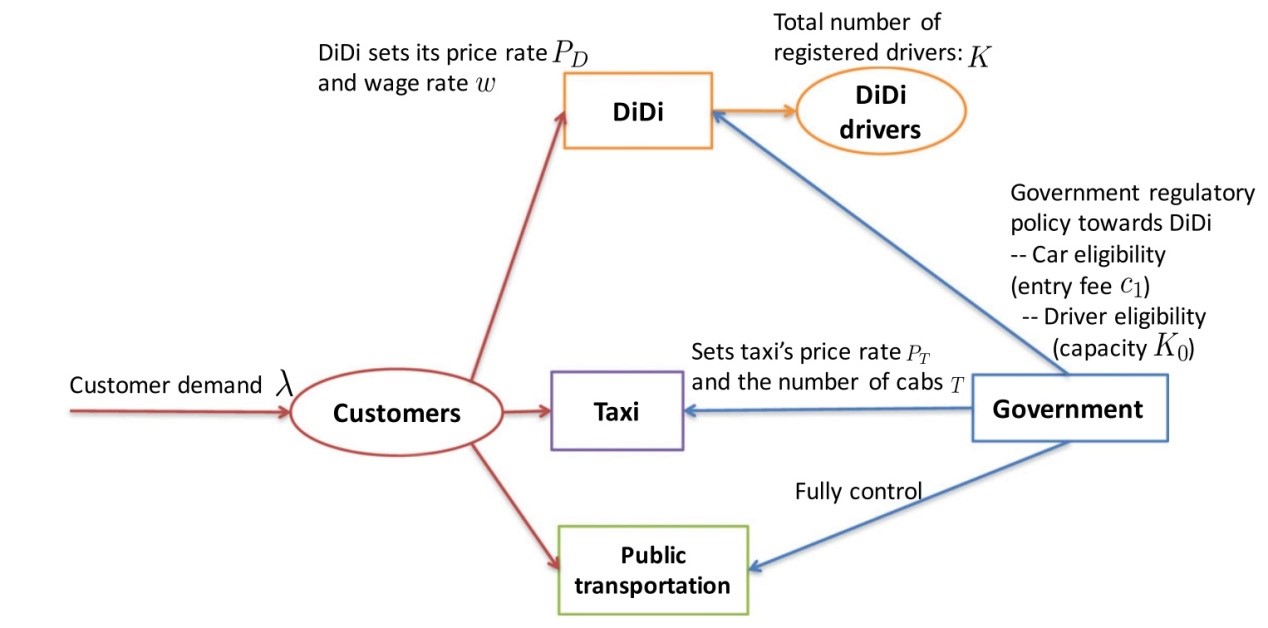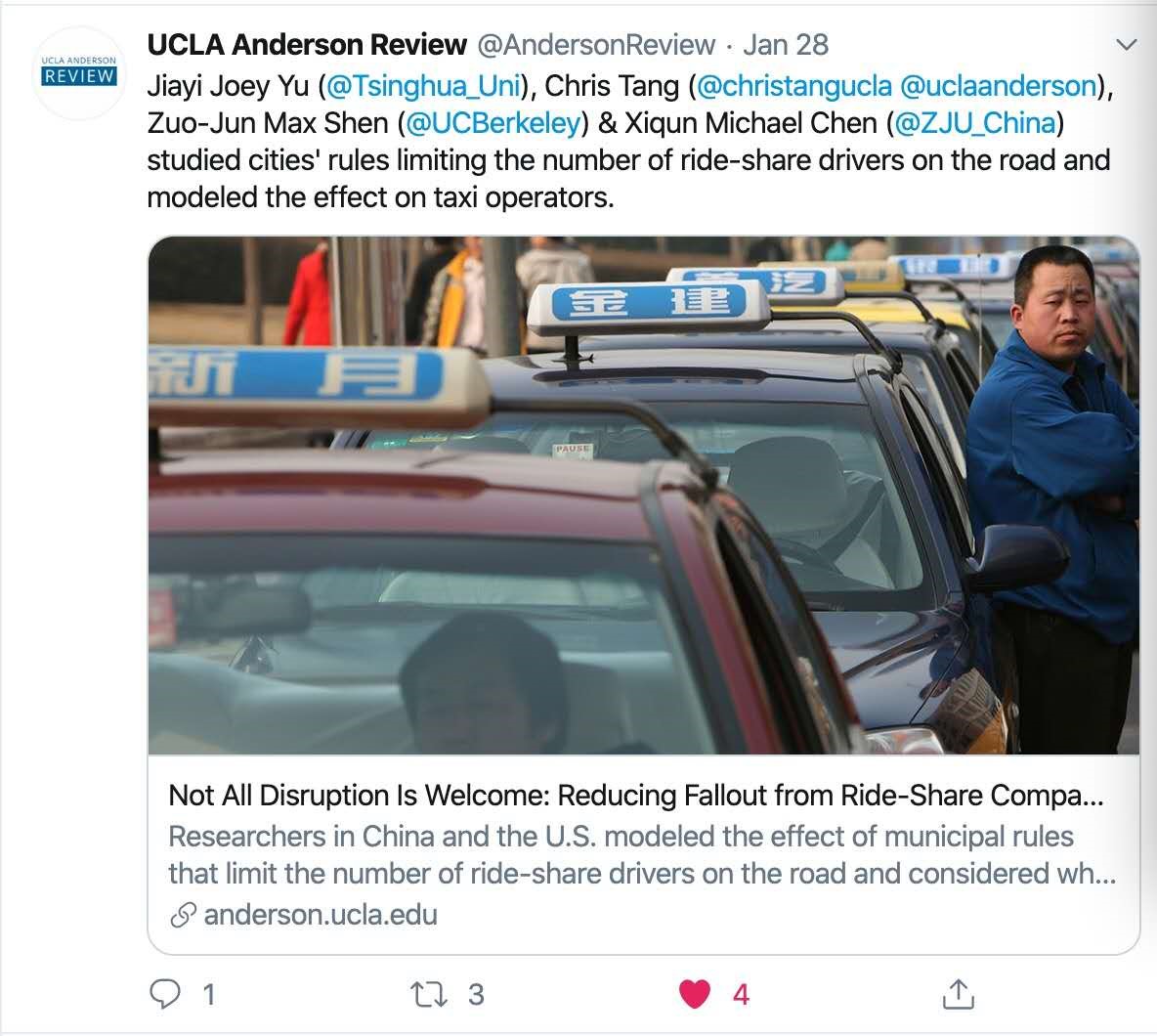发布时间:2020-05-04 16:26:44
UPASS项目组成员、浙江大学“百人计划”研究员陈喜群博士,与合作者一起在《Management Science》发表论文(图1),题目是“A Balancing Act of Regulating On-Demand Ride Services”,研究聚焦于网约车出行服务市场的政府平衡监管问题。

图1 INFORMS旗舰期刊Management Science
这项研究的动机是中国政府在2017年实施的一项网约车市场监管政策以及纽约市议会在2018年批准的一项类似政策,这些政策规定了滴滴或优步注册司机的最大数量。研究首次在不同利益相关者的竞争目标下,评估了政府对网约车市场监管行为(图2),建立了多方博弈模型框架(图3)。通过分析两阶段多方利益相关者(包括乘客、出租车司机、网约车平台、网约车司机)的动态博弈发现,在没有政府干预、出租车价格高、网约车司机数量多的情况下,网约车平台可以将传统出租车行业挤出市场。因此,相对于无监管和完全禁止的网约车监管政策,精心设计的政府监管政策可以更好地平衡多种相互竞争的目标。

图2 政府部门对多种目标的定性评价

图3 出行市场的多方博弈生态系统
本研究得到了加州大学洛杉矶分校商学院UCLA Anderson Review的关注,并在其官方Twitter中分享了研究结论(图4)。

图4 UCLA Anderson Review官方平台推送研究结论
UPASS Project Member Published Research Findings on Management Science
UPASS Project Member, Dr. Xiqun (Michael) Chen, published the research article entitled “A Balancing Act of Regulating On-Demand Ride Services” on Management Science, with his research collaborators.

Fig. 1. Management Science: INFORMS flagship journal.
This research is motivated by a regulatory policy implemented by the Chinese government in 2017 and a similar policy approved by the New York City Council in 2018 that regulate the “maximum” number of registered Uber/DiDi drivers. This paper is the first to develop a multi-stakeholder modeling framework for evaluating the impact of regulatory policies of on-demand ride services on competing objectives associated with different stakeholders (Fig. 2).

Fig. 2. Government’s three options against multiple objectives.
By analyzing a two-period dynamic game that involves these stakeholders (i.e., consumers, taxi drivers, on-demand ride service company, and independent drivers), it is found that, without government intervention, the on-demand ride service platform can drive the traditional taxi industry out of the market when taxi fares are high and when the number of DiDi drivers is high (Fig. 3). Relative to no regulations and a complete ban policy, a carefully designed regulatory policy can strike a better balance of multiple competing objectives.

Fig. 3. A Multi-stakeholder ecosystem of transportation services in China
The study’s key findings are as follows. First, compared withlaissez-faire (i.e., no regulation), the study analytical results suggest that a regulatory policy can help the taxi industry to survive in the market. Second, by imposing an entry fee, the number of registered DiDi drivers decreases, and DiDi increases the wage rate so that each registered DiDi driver earns more under this regulatory policy. Third, compared with a complete ban policy, this regulatory policy strikes a balance among different competing performance measures: taxi industry survival, DiDi’s profit, DiDi drivers’ earnings, and consumer welfare.
Finally, it is worth mentioning that this study also received UCLA Business School, Anderson Review’s recognition, and was shared on Twitter.

Fig. 4 UCLA Anderson Review share the research findings on Twitter.